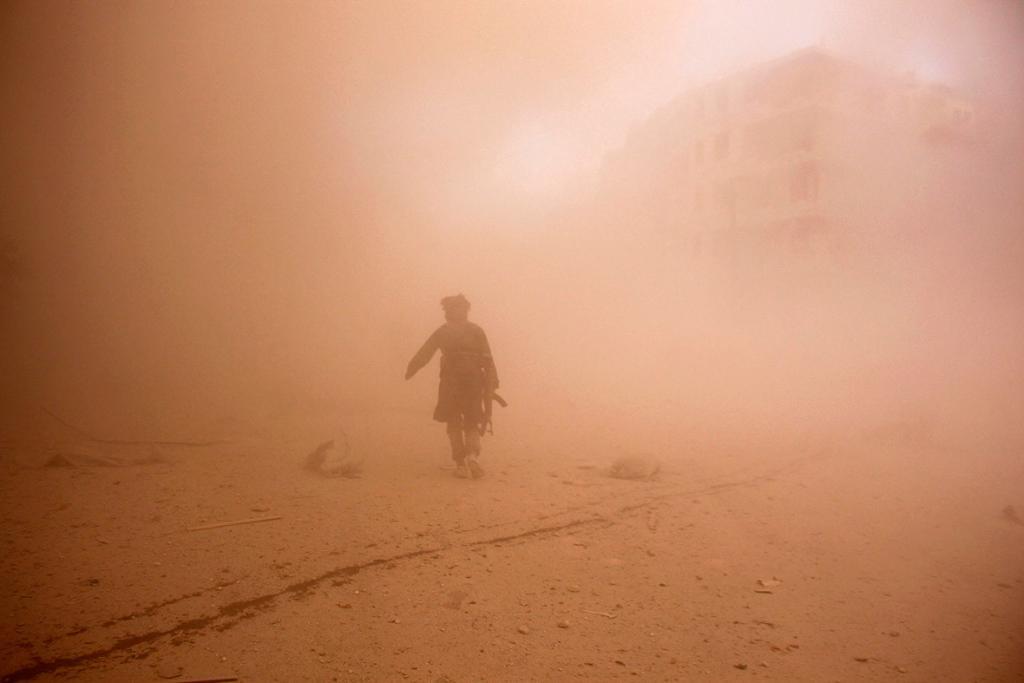As Russia’s victory in Syria cannot be ruled out, it is important to anticipate its repercussions to now take appropriate and decisive next steps. We might face a similar scenario as after the Vietnam War, when thousands of people left the country on boats in fear of persecution, prison or forced labour camp, coining the notion of boat people.
Last September, I wrote that Russia is likely to fill a gap with an active foreign and security policy in the Middle East, anticipating already then Russia’s growing engagement in Syria. After the Ukraine-Russia war, hardly anybody would have foreseen that Russia today would be at the centre stage of security politics as we witnessed last weekend at the Munich Security Conference.
Over the past couple of months, Russia successfully applied its tested military strategy in Chechnya on Syria and is currently putting the regime of the Syrian president, Bashar al-Assad, back into power. A regime that, a few of years ago, even Russia was calling on for a transition of power. The reason for Russia’s shift in its policy towards Syria lays in a reassessment of the geopolitical situation in late summer last year.
“Over the past couple of months, Russia successfully applied its tested military strategy in Chechnya on Syria and is currently putting the regime of the Syrian president, Bashar al-Assad, back into power.”
Three factors seem decisive. First of all, the obvious lack of political will by western states to tackle the Syrian crisis despite the massive atrocities perpetrated by the regime and Daesh (ISIS). This would have meant elaborating and implementing a clear strategy of support for opposition forces and the introduction and enforcement of no-fly-zones. Secondly, the refugee crisis that fundamentally divides the EU member states and has led to substantial cracks in the EU’s political-institutional structure. Thanks to the Visegrad countries, the European Union is currently moving even further away from agreeing and implementing a common strategy on that issue. Finally, there is Turkey’s political alienation from the EU, which, among others, is characterized by its president’s opportunistic decision to use the fog of war to bring Kurdish armed opposition to a definite end inside and outside Turkish territory. While this carries, in the short term, the benefit of further consolidating his political power at home, in the long run negative consequences are likely to arise, in particular, with regard to NATO as a security community.
“Those who think – and many do – that reinstituting an autocratic and brutal regime will solve the refugee crisis in the EU are likely to be proven wrong.”
As Russia’s victory in Syria cannot be ruled out, it is important to anticipate its repercussions to now take appropriate and decisive next steps. Those who think – and many do – that reinstituting an autocratic and brutal regime will solve the refugee crisis in the EU are likely to be proven wrong. We might face a similar scenario as after the Vietnam War, when thousands of people left the country on boats in fear of persecution, prison or forced labour camp, coining the notion of boat people. At that time, 1.6 million Vietnamese people fled their country. By 2015, four million Syrians have left their country. So far, only a minority has left the refugee camps for Europe. A complete reinstatement of the Assad regime might act as a trigger for the rest and more to follow. This highlights the crucial need to find a common solution to the refugee crisis in the EU as well as to devise a political solution for Syria that will allow those refugees to move back home, ie to their currently destroyed cities, houses and apartments.
The reluctance of some EU members to contribute to a common solution is hampering any additional steps necessary to tackle a crisis that is likely to grow. Failing to agree on a common solution will inevitably lead back to power politics in Europe. This will fundamentally weaken the EU as a community and, in particular, diminish the political say of the less powerful EU member states in the international arena.
Most likely, I am not alone with that assessment. From a foreign policy perspective, Russia knows that it is currently in the driving seat. An important additional question remains: after a victory in Syria, where and how will Russia use its newly won position of strength?
I
Cover: A rebel fighter runs through dust towards an area damaged by barrel bombs dropped by Assad’s forces in Aleppo’s al-Shaar neighbourhood (Reuters). The opinions in this article are those of the author.


